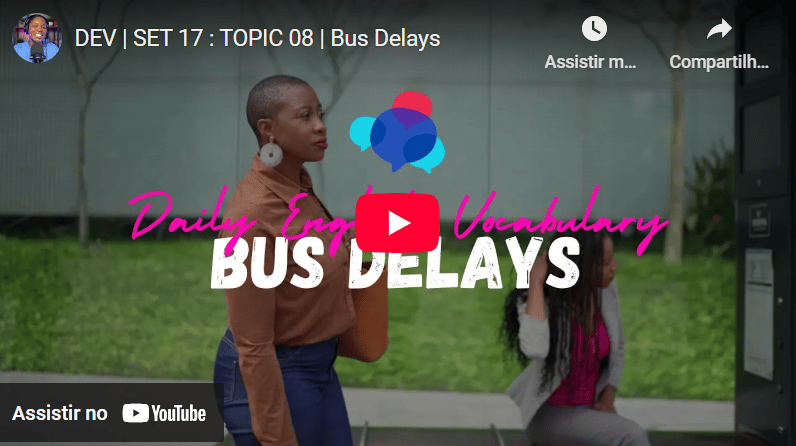- Daily English Vocabulary
- Posts
- 08 | Bus Delays
08 | Bus Delays
Today you will learn 5 new English words related to "Bus Delays"

“Bus delays” are a pertinent topic for ESL learners, like yourself, as they represent a common, real-world scenario requiring practical communication skills. Understanding how to inquire about delays, express frustration politely, and comprehend announcements about schedule changes are essential for navigating public transportation. Today’s vocabulary will allow you to develop the language necessary for everyday interactions and build confidence in using English in unpredictable situations. Let’s jump right in!
5 TERMS
Detour (Noun / Verb): A deviation from the usual or planned route, often due to an obstruction or road closure.
Congestion (Noun): A state of being overly crowded or blocked, often causing delays in travel.
Interruption (Noun): A break or disturbance in the normal flow of events, often leading to delays.
Traffic Jam (Noun): A situation where vehicles are stuck or moving very slowly, typically causing delays.
Setback (Noun): A delay or hindrance that causes a change in plans or timing.
EXAMPLE SENTENCES
Detour
The bus had to take a detour because of a road construction project.
We were delayed by 15 minutes due to a detour around the accident site.
The driver announced that we would be taking a detour to avoid the heavy traffic.
Congestion
The bus was delayed because of congestion on the main highway.
Rush hour traffic always leads to severe congestion, making buses run late.
The city's congestion was so bad that the bus couldn’t get through the usual route.
Interruption
The bus schedule was affected by an unexpected interruption in service.
The delay was caused by an interruption in the bus’s power supply.
Road repairs caused a major interruption, preventing the bus from reaching the station on time.
Traffic Jam
The bus was stuck in a traffic jam for over half an hour.
A traffic jam near the city center made it impossible for the bus to stay on schedule.
The driver warned passengers that the bus might be delayed because of a traffic jam ahead.
Setback
A mechanical failure was a major setback, causing the bus to arrive late.
The bus experienced a setback when one of the tires blew out.
Due to a setback on the highway, the bus was running 20 minutes behind schedule.
EXAMPLE PARAGRAPH
The morning commute was a significant setback, primarily due to an unexpected traffic jam that snaked for miles along the highway. This interruption to the usual schedule wasn't helped by the heavy congestion at every intersection, a common occurrence during rush hour. To exacerbate the problem, a sudden road closure forced the bus driver to take an unplanned detour, adding another frustrating layer to the already lengthy delay. Passengers, already tense from the prolonged standstill, could only watch as the minutes ticked by, their arrival times pushed further into uncertainty.

